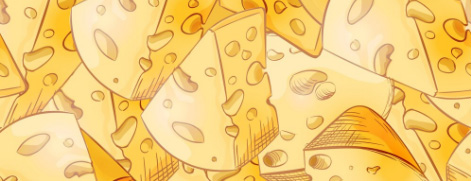Should You Feed Your Pets With Cheese?

Cheese is one of the favorite products for thousands of people. It is incredibly tasty and contains a whopping number of nutrients and vitamins that are necessary for the human body. But what about pets? Should you feed your animals with cheese? Is it good for their health and overall well-being? Let's find out the answers to these common questions asked by hundreds of caring cat and dog owners.
What Type Of Animal Feed Is The Best?
Animals are all different and might require various types of feed, depending on their health condition, size, and way of life. However, most veterinarians believe that food produced for animals is the best option for your four-legged friends. It is important to choose only quality feed for your pets to help them remain healthy. If you don't know which one to choose, it might be a good idea to pick up the best dog food for large breeds. This one will become an excellent feed for your pet if you are a happy owner of a hound. For those who prefer keeping cats, it is necessary to read the most up-to-date fromm cat food reviews for picking up the healthiest feed. Feeding your pet with nutrients-rich feed is always the best solution.
But what if you would like to treat your pet with cheese? Is it good for your cat or dog? The answer is that you can treat your pet with small amounts of cheese. For example, use this product as a special reward during training. Keep in mind that most dogs are lactose-intolerant, so it is better to give the lowest amounts of cheese to your pet. Always start small to make sure your dog feels good after trying this product. Moreover, if your animal suffers from diarrhea after consuming cheese, it is better not to give it to your furry mate in the future. Cheese is also rich in fats, so it is better to avoid it in case your dog suffers from pancreatitis, diabetes, or obesity.
Now, let's find out whether different sorts of this product are good for your furry mate. Spoiler: Not all types of cheese are safe for your pet!
Cottage Cheese
This tasty product contains the lowest amount of fats and sodium. Therefore, it is one of the best options for your pet. It might also be good to allow your pet to try cottage cheese before offering other sorts of cheese.
Blue Cheese
Never give your pets blue cheese! It is dangerous for their health. The fact is that some fungus is used to producing this sort of cheese that is harmful to animals. Many cats and dogs are sensitive to it. In case you give your pet the blue cheese, it might suffer from diarrhea, vomiting, and even seizures. If you noticed your dog displaying one of these conditions, it is better to visit the veterinarian immediately.
Cream Cheese
This is a tricky product for your pets. The reason is that many types of cream cheese contain various additives, including garlic and onion. These vegetables are toxic for your furry friends. Moreover, some sorts of cream cheese are made with numerous preservatives and chemicals. Generally, you can give your pets cream cheese in small amounts. However, keep in mind that it contains a high level of fats. If you would like to give your animal cream cheese, make sure to consult the veterinarian not to harm your cat or dog.
Should Your Pets Try Cheese?
This product contains a wide number of vitamins and minerals, including calcium, vitamin A and B-complex. All this sounds good and very appealing to all caring pet owners. However, you should remember that your animal is getting all these nutrients from its regular diet. Therefore, there is no need to give your cat or dog some cheese. Moreover, if your pet has some issues with digestion or high temperature, it is better to avoid feeding it with cheese. Note that some sorts of cheese might be mixed with fruit, onion, nuts, and garlic that are not good for your animal's health.
If you decide to give a pet some cheese, treat it with a small piece first. Pay attention to your animal's individual reaction to this product. If everything remains okay, you can give another piece the next day. However, if your cat or dog starts suffering from collywobbles, diarrhea, or has an unhealthy look, it is better to return to its regular feed. Be attentive to your pet's diet, and never give your furry mate any harmful goods.
What about animals that are gluten-intolerant? If you have a pet that can't digest products with gluten, you shouldn't give your four-legged friend any cheese. This product is made from milk and is not gluten-free. In other words, it is better to avoid feeding your pet with lactic products.






Loading comments...